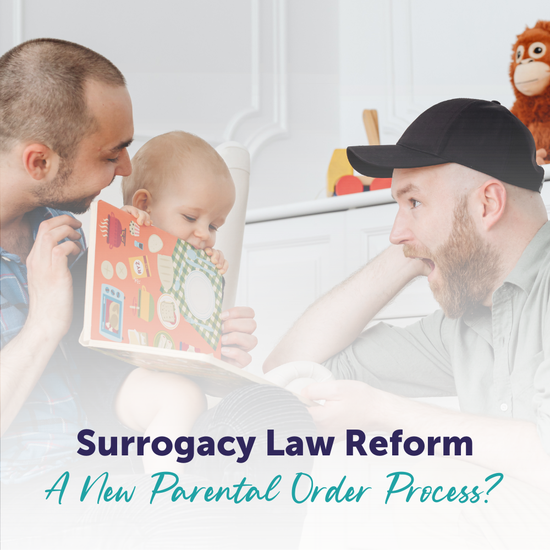Surrogacy is the hot headline of the day thanks to Hollywood and a very unusual court case. Nicole Kidman has had a second baby via a surrogate, but she unfortunately caused debate and controversy by referring to her surrogate as the ‘gestational carrier.’
The second reason surrogacy has dominated news pages is because a judge has ruled that a surrogate mother here in the UK can keep the baby – it’s biologically hers and she refused to hand it over to the married couple she was having it for – because she was better able to meet its needs and the child’s welfare is paramount.
So why the media storm? Surrogacy gives women who are unable to carry a child themselves the chance to have a baby. There are two different types of surrogacy – host or gestational and straight surrogacy.
If you aren’t able to carry a baby, but you have your own eggs, then it follows the same procedure as IVF – your eggs are fertilised by your partner’s sperm, but instead of transferring any resulting embryos into your body, they are placed into the surrogate’s instead. This type of surrogacy is called host or gestational surrogacy, and the procedure is carried out by us at Manchester Fertility.
If you’re not producing any eggs at all, then you can use the surrogate’s eggs. This type of surrogacy is called straight surrogacy. The surrogate inseminates herself with your partner’s sperm, in the hope that she will get pregnant.
Perhaps there has been such controversy because the term ‘gestational carrier’ doesn’t conjure up the image we want – we don’t want to imagine surrogacy as simply ‘womb for hire’, and some have commentated that it’s in danger of becoming more of a lifestyle choice than a necessity in some Hollywood circles.
There’s also the complicated issue of the law. Who are the legal parents when using a surrogate? In cases of host or gestational surrogacy, then you are both the genetic, biological parents of the baby.
But in cases of straight surrogacy, the surrogate is the biological mother of the baby – as in the court case mentioned above. There is a legal process to follow to get full parental rights – for more information on the legalities, visit https://www.surrogacy.org.uk.
Then there’s the issue of how much money is ‘too much’. Under current UK laws you can only pay surrogates what is deemed as ‘reasonable expenses’, such as loss of income. You can’t pay high amounts of money to a surrogate, even if they live abroad, for example in the USA where the rules are different.
But there’s no doubt that surrogacy is growing in demand in the UK. For the majority, it’s not a lifestyle choice, it’s the only way they can have a baby.
At Manchester Fertility we often counsel and advise patients who need to use a surrogate to have a baby. In all cases, we refer patients to COTS – Childlessness Overcome Through Surrogacy. It’s an organisation which can help those who need to use a surrogate, including helping to find a surrogate through their Triangle scheme.
For more general information about surrogacy, you can speak to our team on 0161 300 2737.
Last updated: 18th July 2024






